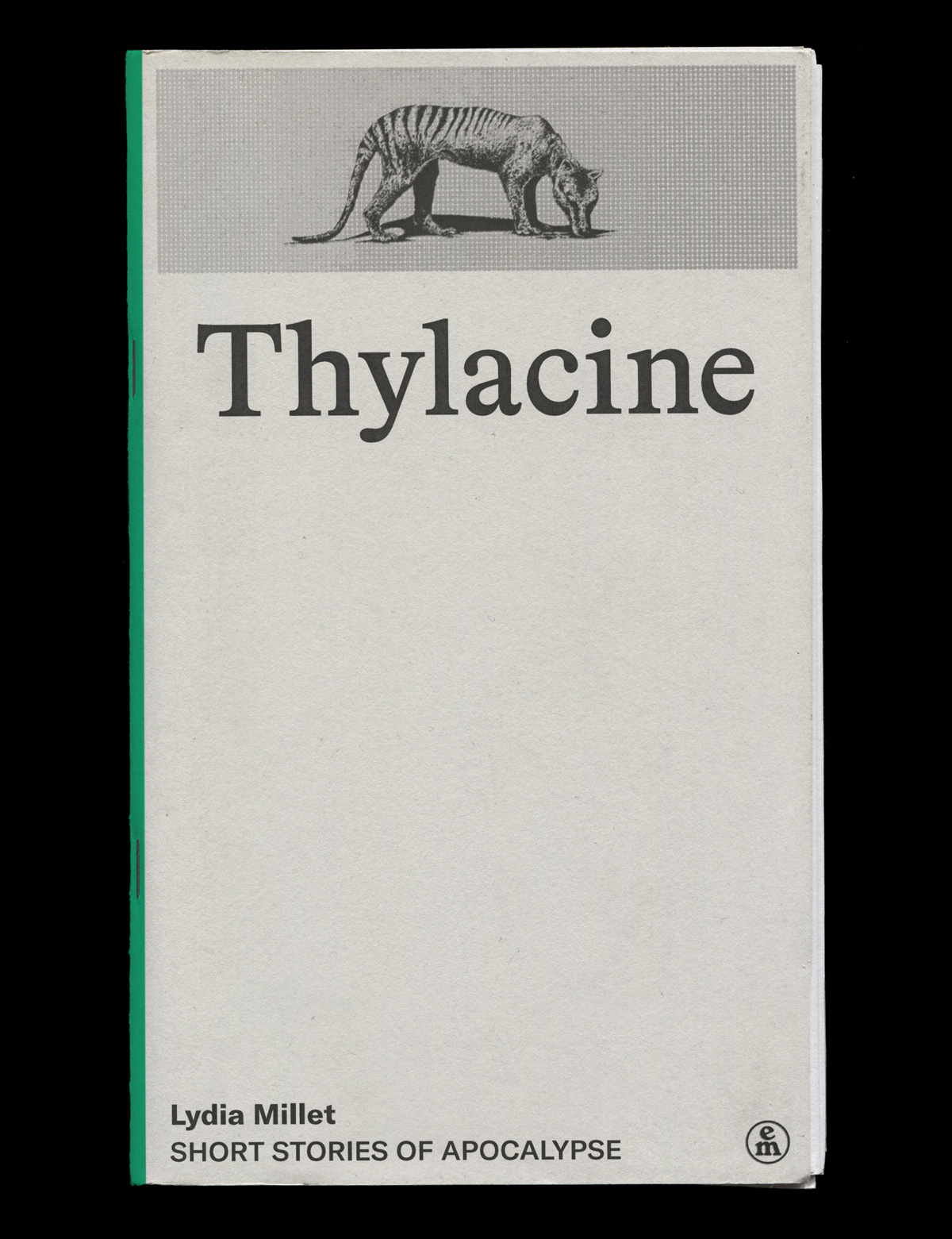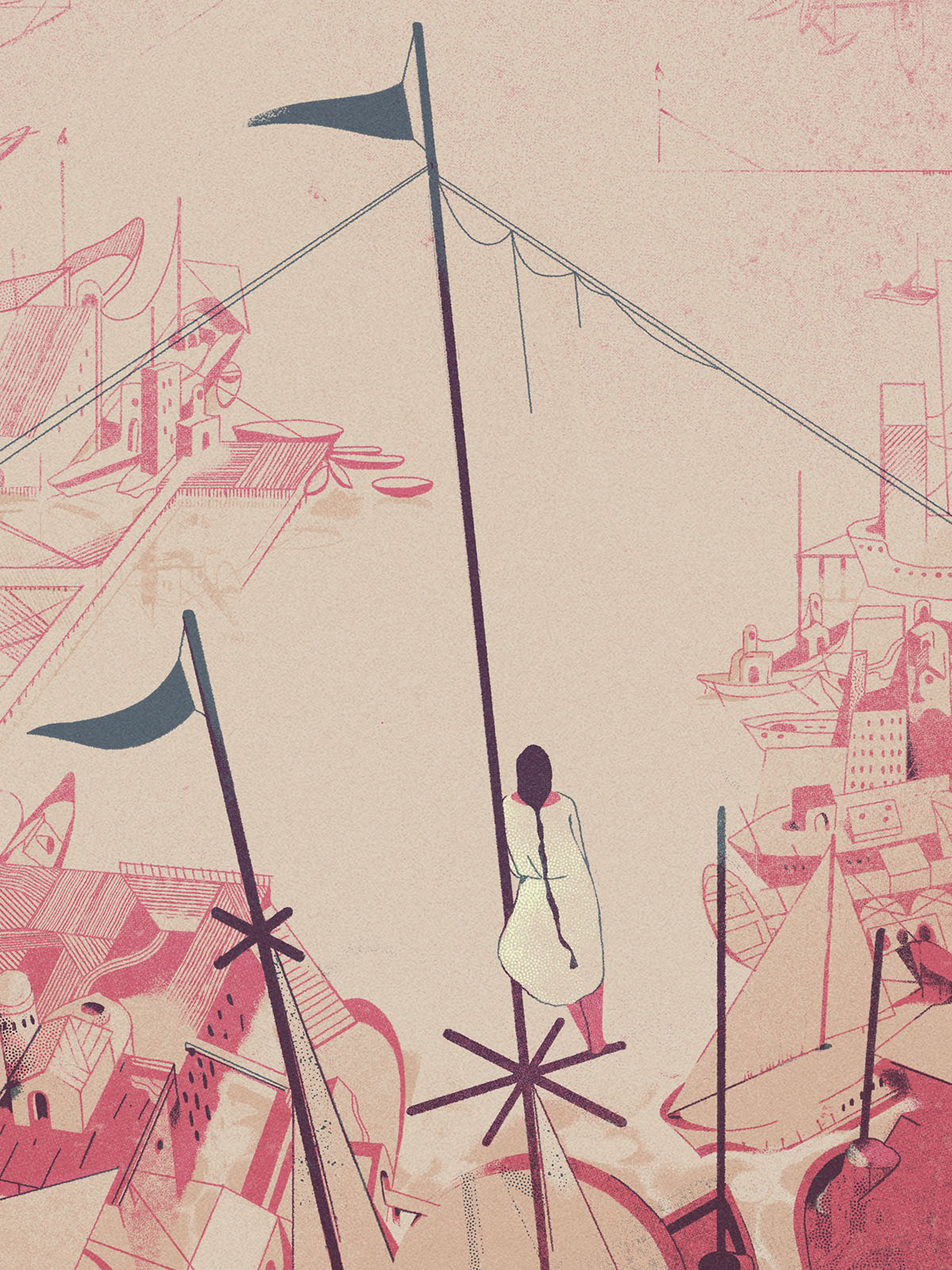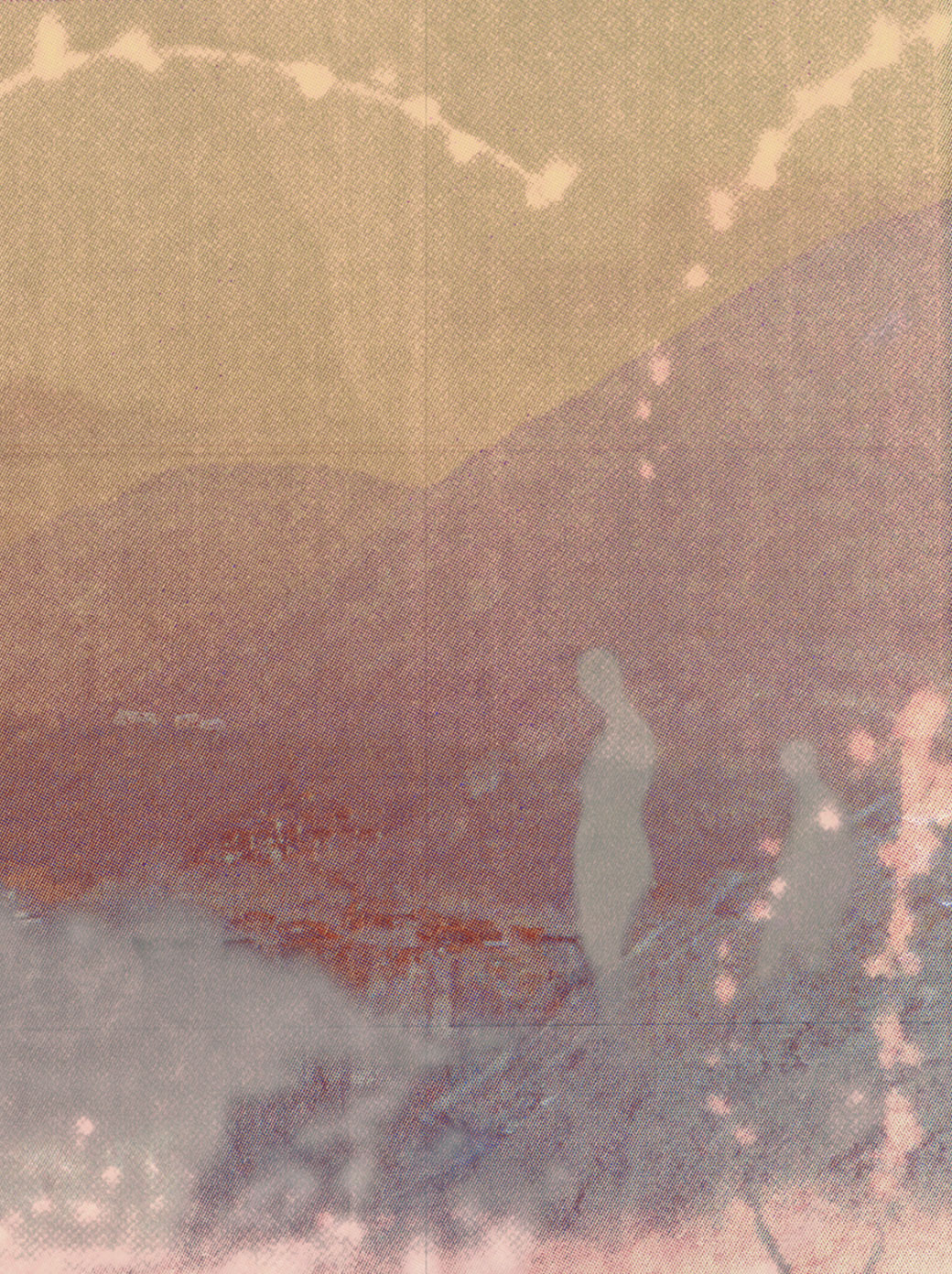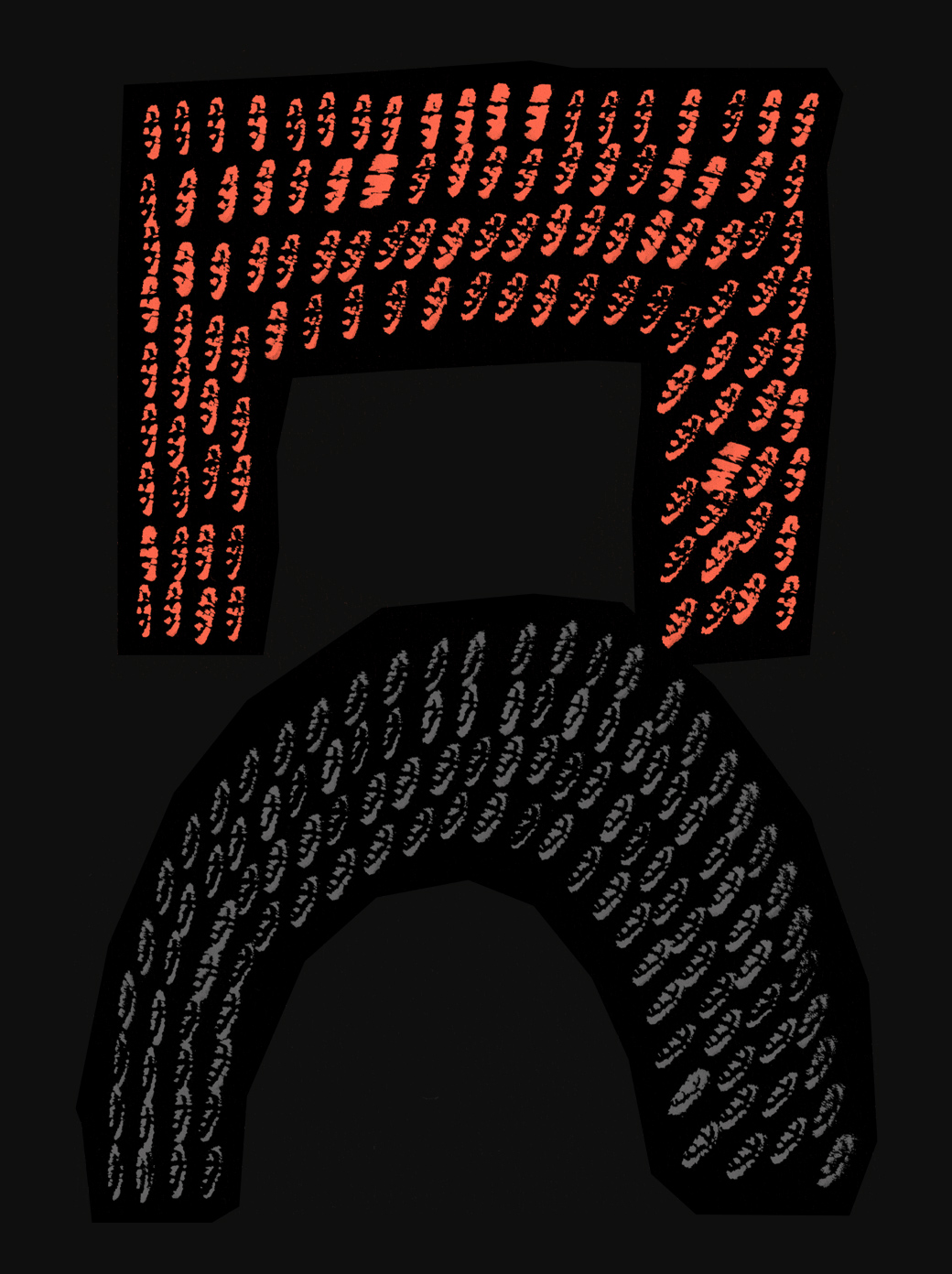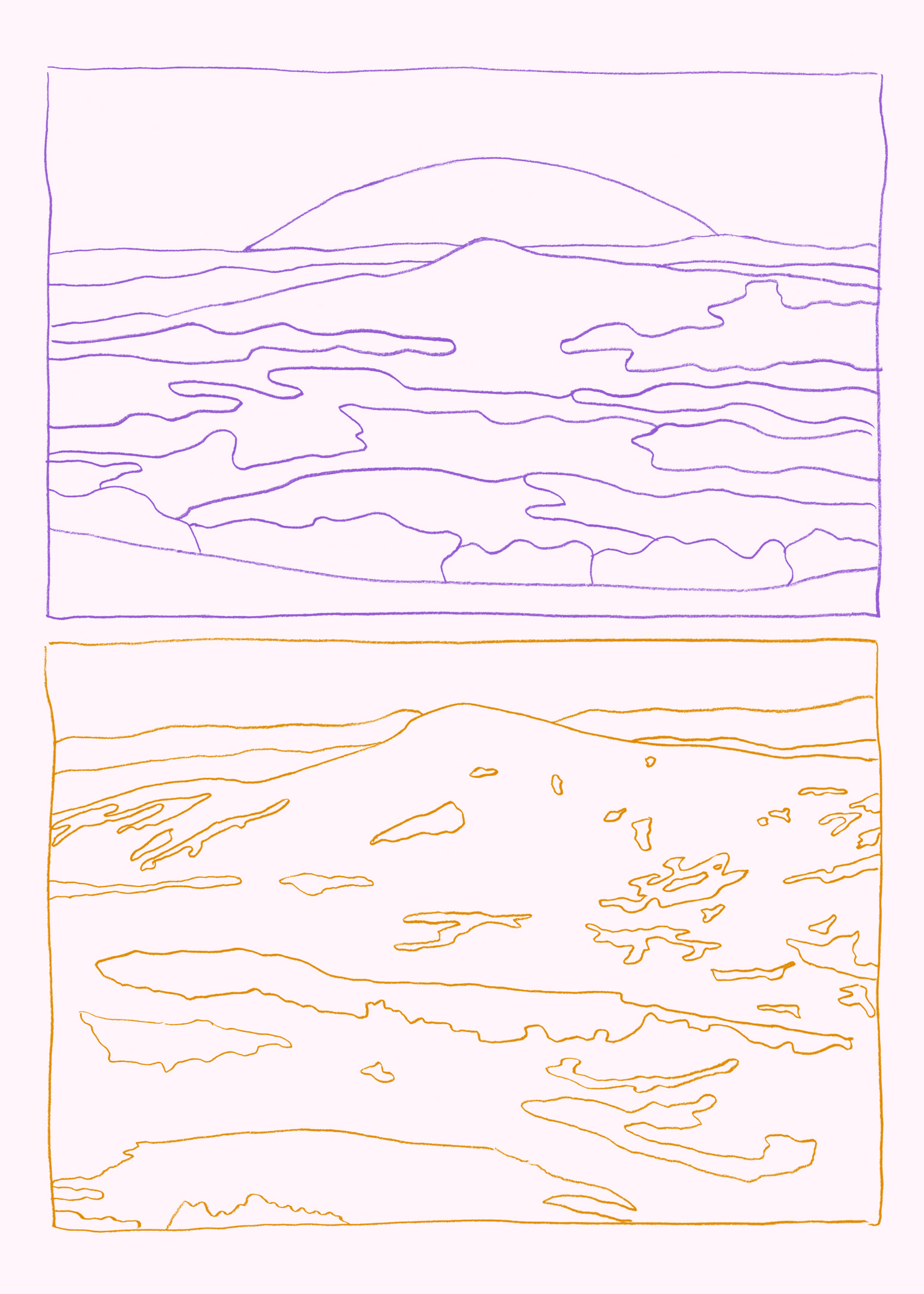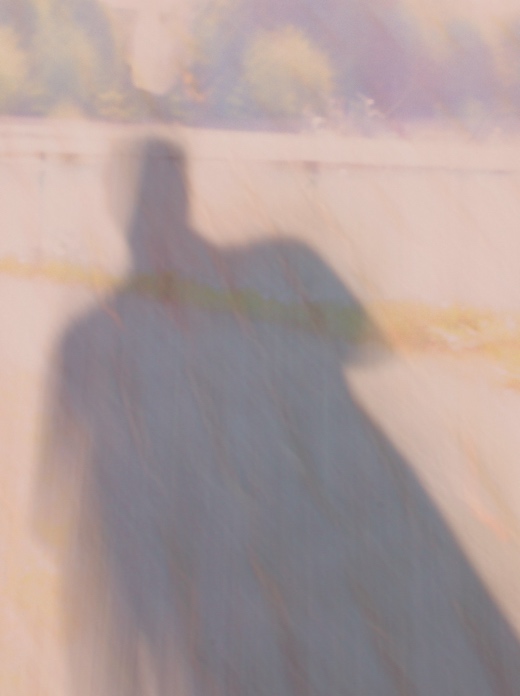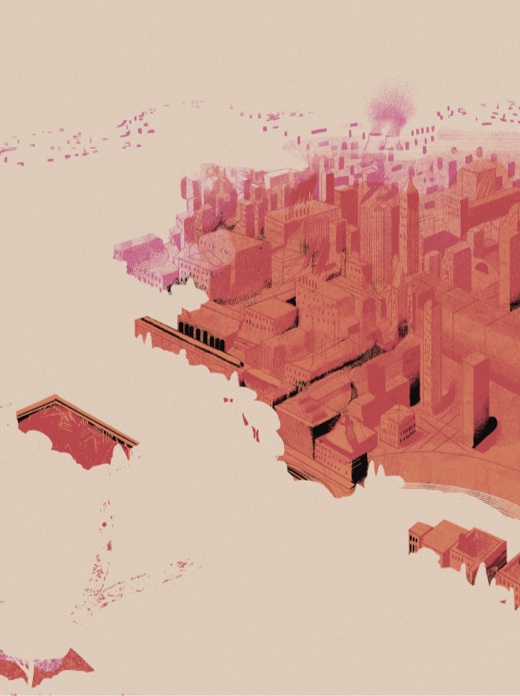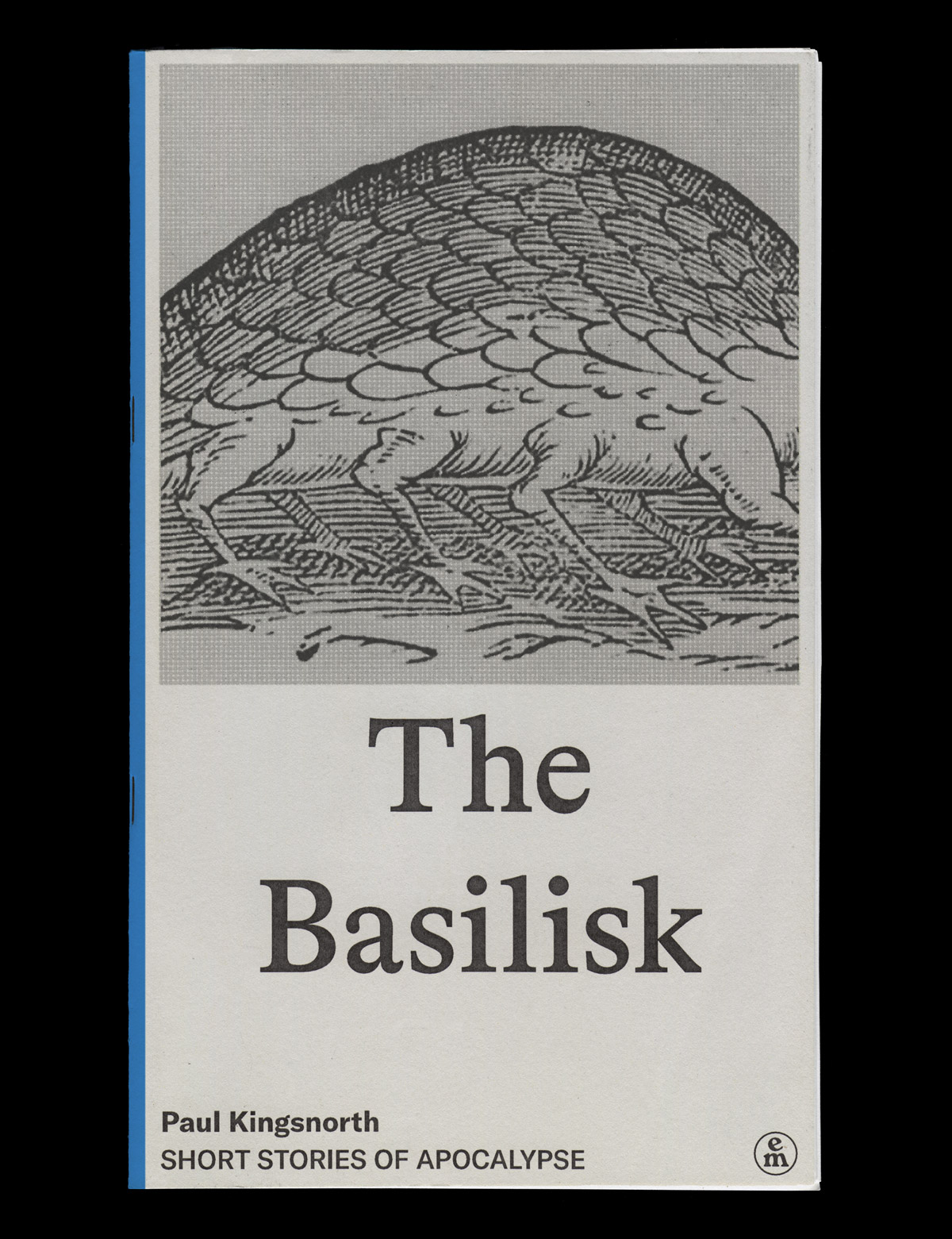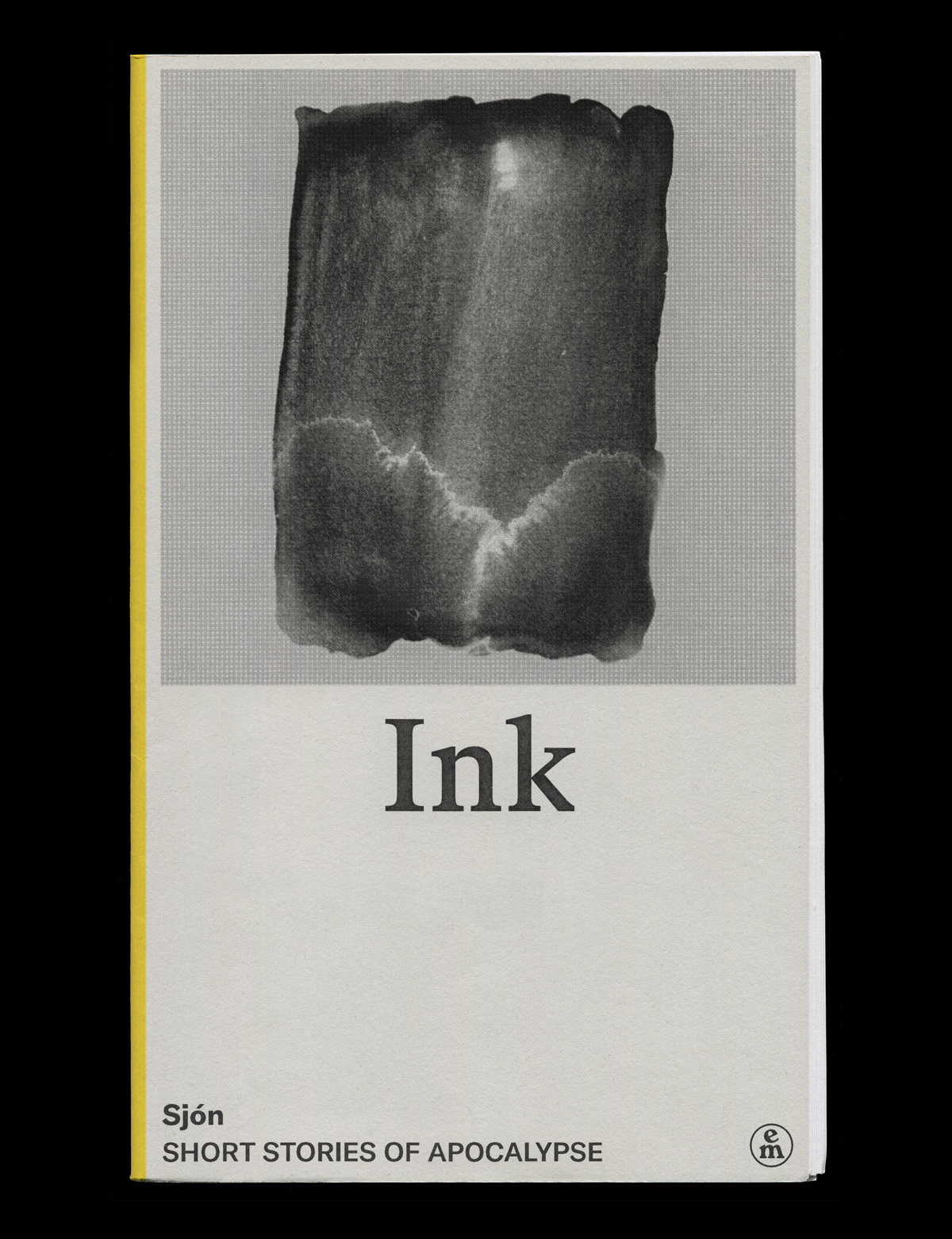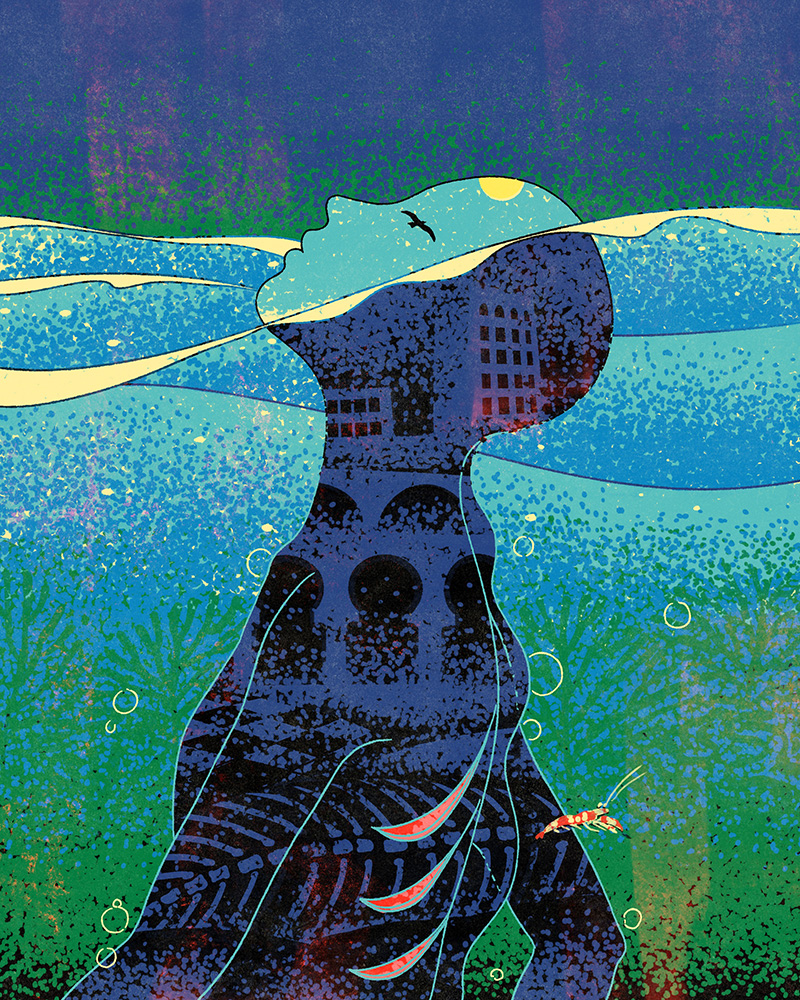
Lydia Millet is an American novelist and conservationist. She is the author of numerous books including A Children’s Bible; Love in Infant Monkeys, a finalist for the 2010 Pulitzer Prize; and My Happy Life, winner of the 2003 PEN Center USA Award for Fiction. Among her other awards and honors are a Guggenheim Fellowship and the Award for Merit for the Short Story. She lives in the desert outside Tucson, Arizona, with her two children and works for the Center for Biological Diversity.
Hobart, Tasmania, 1935–36
Twice a day he could feel peaceful in the house, when the tension of grieving ebbed from his body. The muscles loosened. Inside their sheaths of tissue, his bones seemed less heavy. Shot through with the invisible air, like the limbs of a bird.
And then his mood lifted. Levitated by the magic of light. A sacred magic, he might have dared to call it. If he’d been a good Christian.
The first time came around dawn, when beams struck through the window glass and lit up the edges of things. A silver glow that prickled with energy. He could stand bathed in that glow, in its faint tinge of warmth.
The second time arrived at dusk. If the clouds were right, a violet light filtered in and bestowed a velvety calm on the walls and floor and curves of the furniture. Everyday objects turned delicate and beautiful, as they were meant to be. Sometimes he even had the fleeting, euphoric sense that his mother wasn’t gone at all. Not gone but only changed. Transmuted from matter into memory.
Those two times might have been enough if they’d lasted longer. He could have stayed out of the house during the day, between them. Then slept from the good time at dusk till the good time in the morning. Bracketed by light.
But each time lasted only minutes. Or seconds. It depended on the season, the position of the sun in the sky. On the clock, the time of illumination moved as the year wound on, following the sun’s shifting angle.
He’d tried to capture the perfect light by rearranging the lamps, adjusting the curtains and blinds. The bed and chairs and tables. Old pictures on the walls, her copies of famous paintings. The dearest, to her, was always the scene of a hill over a harbor, where a man in a red shirt was pushing a plow. In the background, ships sat at anchor in the blue water of a bay. Tiny legs stuck out of the water, and overhead, in the sky, hovered a man with widespread wings.
But none of it worked. Existing in the house, outside those moments, was like having a wire brush scrape over his skin. Often he couldn’t sleep, distracted by the scraping. It flared up from the soles of his feet in painful twinges. He tossed and turned, dreading the tickle and the burn.
Skin, he thought, was the organ that met the world. Everywhere on you, soft and porous and bristling with nerves. Easy to set afire.
It wasn’t the house’s fault. Or hers. He didn’t blame her for leaving it to him. The house was all she’d had. Her precious home. Where, he had been told, his father had also once lived. He’d been too small to remember this. His father had removed his own person but left the little house for them.
When she was alive, he’d rarely been alone. She’d played music on the gramophone and danced with him. Or talked cheerfully as she cooked. Said he’d gotten too thin. Needed to meet a nice girl. Well, that would be fine, he’d said. And what do you suggest? For a strategy?
It was just walls and a roof and floor. He couldn’t leave it, of course.
All that remained.
On the rolling grounds of the Beaumaris was a tall tree. He’d found it during a daytime visit to the zoo. Soon after, when the velvet light of evening faded, he began to go there. Loaded up his rucksack, walked fifteen minutes through the darkening streets, and snuck in by climbing another tree, outside the fence, and dropping down.
It was a decent drop, ten or twelve feet. Turned his ankle one time on the landing, so badly he was afraid he’d broken it, but no—just a bad sprain. He had the hang of the jump now, though. Climbed up into his tree and nestled there in a well-shaped crook among wide boughs. Like an orangutan, he thought. They were good nest builders. He didn’t have their fur, so he wrapped himself in blankets. For a few weeks it had been hard to sleep like that, but he got used to it.
At night the zoo’s gardens were empty of people. Alison, who managed the zoo for her sick father, Mr. Reid, wasn’t allowed to have the keys, being a woman. Although, as a matter of fact, the zoo had been founded by another of the fairer sex.
She asked for the keys repeatedly, but the higher-ups, who were never around but in some office at an undisclosed location, said no. So she couldn’t get in at night. Locked out like the hoi polloi, although she ran the place. Sometimes he wished he could show her how to get in so she could feed the animals she hadn’t had time for, but he couldn’t, of course. She was a proper, upright person. She knew him as a regular zoo visitor and seemed to like talking with him well enough—maybe because he listened. More of a rarity, perhaps, than it should be.
Still. There was no guarantee he’d be able to convince her of his good intentions. Not after the dreadful episode with the thief.
And likely she couldn’t have made the jump anyway. He’d have given up his sleeping tree for nothing.
No one else cared about the animals. The sustenance workers, who were assigned their jobs by the higher-ups just for something to do, didn’t like the zoo. It was obvious from their attitudes.
He heard the night sounds of birds. A low growl or hoot or rustle from the mammal cages. Mostly he didn’t see anyone at night, the staff or the animals. Mr. Reid used to patrol, but not anymore. He’d lost an eye when the thief broke in to kidnap exotic birds to sell. Punched and kicked the elderly curator, who’d bravely tried to stop him. Must have beaten him after he was down on the ground, because how else could he have gotten to the old gent’s eye?
But Alison didn’t like to talk about the incident.
That was years before he started coming to his tree. He heard the story from the secretary with no legs. Blown off in the Great War. He only worked during the day, and frankly didn’t work much at that. “Manson” was his name. Shuffled papers around from his chair and looked glum. Sure, he was glum—no legs. He was a protégé of Mr. Reid’s: the job had been a favor to a soldier, down on his luck.
Then there was cancer where the eye had been. Mr. Reid lay in bed in the curator’s cottage with his wife tending to him. Alison did everything for the animals. Cared for them, cleaned the enclosures herself when she had to. Also knew taxidermy. Used to raise money that way, commissions for museums. Now it was all she could do to get the animals fed and watered in a day before they locked her out. Sixty or seventy cages, and she had two men to help. At best.
Plus the sussos, but they were disrespectful and sat around cussing and smoking.
During the day, he came to the zoo on his lunch hour. It took him twenty minutes, at a rapid clip that was nearly a run, to walk there from his place of employment at the post office. So when he arrived, he had all of twenty minutes’ grace before walking back again. He brought a sandwich or shepherd’s pie to eat. His mother had taught him to make two dishes: the pie and toad-in-the-hole. It wasn’t toad, of course—beef sausages and drippings in a batter. He’d never developed a taste for it. Didn’t tell her, of course. He disliked it so much, he’d always eaten it quickly, to get the ordeal over with.
As a result, she’d believed it was one of his favorites.
Sometimes he went to see the African lions, which Alison had raised from cubs. As a boy, when his mother had brought him, he’d liked to watch the devils, with their plump, dark-brown bodies. But that exhibit had been closed.
Most often he sat with the animal Mr. Reid called “the wolf.” The Tasmanian wolf—or Tasmanian tiger, for the stripes on its back. Its real name was “thylacine,” Alison said, but no one called it that.
In the past, there’d been more of them, and Mr. Reid and Alison had tried to breed one or two, but now there was just her. A female with a pouch, just like the kangaroos in the enclosure opposite. She was a marsupial, but she ate meat. There’d been a bounty on the tigers until some thirty years ago, soon before the war. Because of sheep farmers who didn’t want them eating the sheep. For the sake of the bounty, they’d been killed off by the thousands. Slaughtered, really. Shot, or trapped to lie dying. The healthy ones fought the traps, while the sick or weak surrendered without a fuss.
They couldn’t find a single male to try to breed her with, Alison said. The trappers, like Churchill, who’d got this one, reported no sightings anymore. Zero.
On the mainland, they’d been gone a long time since.
Alison had confided in him, once, that though she didn’t like to say it, sometimes, in anxious moments, she was afraid their tiger might be all there was. The last of all of them.
The sheep farmers had told stories that made the animals seem mean. Mean and stupid. But when he looked at this one, he could tell she was neither.
The tiger’s head was big for her body, compared to a gray wolf or a dog, and she could open her jaws so wide, he could barely believe it. It was as though they unhinged, like a snake’s. But more endearing. Sometimes she yawned lazily. That was a treat. Made him laugh. Like the tiger was showing off her jaw stretch. All casual—like, ho-hum, nothing to see here—then GIANT STRETCH WITH MANY SHARP TEETH.
He knew she wasn’t showing off. If an animal did show off, it wouldn’t be for the likes of him, a skinny, quiet man sitting on a rickety bench eating from a canvas sack.
But it still seemed that way. He had to chuckle.
The tiger slept and paced, slept and paced. Her cage was small. When she was cold or hungry, she made a coughing bark, wishing for Alison to come. Wanting to be let through a hatch into the private part of the enclosure, hidden from public view, where it was cozier and warmer.
Or wanting Alison to bring her food.
It was a dark day when Mr. Reid died. December, summertime, but grim. He heard the sussos talking about the death as he went through the teahouse carrying his lunch sack. They were loafing around. There was no one to man the turnstiles anymore, so visitors had to go in through the teahouse.
Now the gloves’ll be off, muttered one of them. A ginger with pockmarks.
The gloves off? What did it mean?
He stepped out of the teahouse on the zoo side and was struck by the quiet. As though the animals, by some mental telepathy, were partaking in the sadness. He saw the leopard standing with its head down.
He wondered whether he’d been sleeping in his tree when the poor old curator breathed his last. Mr. Reid was a Scotsman but had lived here since he was practically a boy. Half a century, Alison had remarked. Maybe he’d wished he could die back in Scotland. In the drifting mist of the moors, with the mournful tune of the pipes to send him on his way.
His own mother had been born right here. Her father’d been from England, exiled to the Model Prison at Port Arthur. The boys’ prison. They sent them there as young as nine. In his grandfather’s case, for stealing when he was hungry. An orphaned street urchin. Shut down now, by the grace of God, his mother said. A place so terrible that some of the littlest boys jumped from a cliff to certain death. Holding each other’s hands.
But her father survived. Served his time, then moved to the city.
The tiger was cough-barking. Her hunger bark—had to be. Not cold out, so she had to be begging. If Alison was with the undertaker, surely no one had fed her. You’d think the sussos would handle that, at a time like this, but no. They only answered to direct orders. Refused to take the initiative. He didn’t understand it. When there were so many animals going hungry. In their place, he’d have been running at top speed to make the rounds.
He could see the tiger’s ribs. Alison took a lot of trouble to feed her the best of the scraps. But the scraps delivered lately were low on meat, and the meat that did come was rancid and seething with maggots.
He sat on the bench, hesitating. There was a nice leg of lamb in the pie he’d made. The tigers loved lamb, if you gave credence to the sheep farmers’ account. Potatoes, diced carrots, not so much.
Could she eat it cooked? Would it give her indigestion? A bout of diarrhea could be serious for a critter so thin.
Still. If she could handle that slop of worm-ridden, soupy intestines…
Cough-bark. Cough-bark.
He took the dish out of the bag, picked the lamb pieces out with his fork, and set them on the bench beside him. Looked around furtively, then tossed one through the bars.
Snick-gulp! She snatched it up.
A second. Snick-gulp! And a third.
He took a bite of potato for every piece of lamb he threw.
“We’ll both get fed,” he told the tiger. “See if we don’t.”
Snick-gulp.
“Attagirl.”
After that, he fed her the lamb from his lunch pie every day. With Mr. Reid gone, the higher-ups were cruel to Alison. “Cruel” was the only word for it. Cruel to the woman and therefore to the animals. Since she was their only hope.
When the curator died, they promised, at first, that she and her mother could keep living in his cottage, still with no salary. “In consideration” for her running the whole zoo.
Then, swiftly, the higher-ups changed their minds. Evicted the family from the cottage, their humble abode of many years. The two ladies were practically destitute. Had only the curator’s measly pension.
The zoo, too, was almost penniless. Fell into disrepair. Alison still came, still did her best, for no thanks. Received only contempt. That was the hard part, she said. Harder than being paid no salary.
When he visited during the day, he started to see empty cages that had once been full. It got so bad, he didn’t stroll around anymore. Didn’t want to find out which cages were newly empty. Instead made a beeline for his bench. Didn’t glance to his left or right. Pretended he had blinders on. A workhorse.
Sat down and fed the tiger. She was suffering from malnourishment, he suspected. One day he’d seen a tooth on the floor of the cage.
Usually he woke up before sunrise—had trained himself to do so out of fear of discovery—but twice he overslept and then, outside the fence, saw Alison waiting to be let in. Clouds of her breath as she waited, rubbing her hands together. Stepped out of view before she could catch sight of him.
More and more, he thought of making her an offer. To do the feeding at night. Schemed about making his proposal. If she could leave a scrap bucket out for him, he’d say, he would sneak in after dark and finish her rounds for her. He wouldn’t have to tell her the part where he’d already snuck in. Wouldn’t have to let on about his tree.
Surely she wouldn’t guess. No one would suspect a man of sleeping in a tree. His habit was too strange.
But he worried she would turn him down. Or, worse, she wouldn’t, and they would be found out. Then she would lose the scant privileges she still had. And still more of the animals would go hungry.
Increasingly his sleep in the tree was restless. He was beset by dreams of animals. Predictable dreams, he had to own. In one dream, a kind of ghost of Mr. Reid lived in an animal cage himself. He had both of his eyes again, but they were horrible. As big as saucers, round and dark. And growing steadily larger.
He opened his mouth to speak, and no sound emerged. His hands fluttered at his sides. Pale stubs of wings, too small to fly with.
In another dream, less frightening, he saw Alison opening up the cages. She led the animals out and down the streets of the city, a baby koala clinging to her back. They followed her, docile as children walking behind the Pied Piper. Some of the birds—the quail and pheasants her father had loved—took off in brief spurts of flight. Whirring, round forms dispersing over rooftops. Into the ether.
Far away the small procession faded. He was left with a piercing regret. He should be happy, he recognized as he dreamed.
Yet all he knew was sorrow.
You had to screw your courage to the sticking place, his mother used to say. A line from a famous play. She’d kept a collection from her schoolgirl days. Sometimes she’d read them to him, doing different voices. The voices had made him laugh, even when the plays were serious. Hush now, she’d said. Have some respect!
But she’d been smiling too.
Maybe he could find a way of getting scraps himself, say, from the butcher’s boy, to feed the ones who were awake at night. It would mean looking at empty cages, but that was where the courage would come in. There was nothing he could do now for the ones that were gone. His task was the cages that hadn’t yet fallen empty.
He had to admit that soon he would be forced to leave the tree. The nights were becoming frigid—he’d added more wool blankets, but then a cold snap arrived. His breath made a fringe of icicles inside the scarf he wrapped around his head.
It was a cold that made you feel how near you were to the great continent of ice. That whiteness at the very bottom of the world.
One morning, when he awoke, his toes seemed nonexistent.
Later he didn’t know what had made him do it—he never walked inside the zoo before it was open, only got out as fast as possible. Furtive. The cold was so biting that, recalling it, he guessed maybe he’d been confused. Walked unsteadily down the path, swayed back on his heels, trying to flex his toes back into existence. Panicked by their apparent loss.
Not a soul around. No one.
Found himself, as the sun rose, going toward his bench at the tiger’s cage, still preoccupied with his toes. On other mornings, at precisely that moment, he would have been back at the house, awaiting the advent of the glowing light. The silver bars it raised along the counter edges and handles of cabinets.
The tiger lay on her side in the public part of her cage. This, in itself, was wrong. She should have been tucked away in her den, where it was warm. He could see from the closed hatch at the back that she’d been locked out. No one had come by to let her in.
He made a clucking sound to wake her up. Stood at the bars. Clucked, hissed, then whispered. The tiger’s hearing was acute.
No movement. Her body seemed, somehow, too flat. Too small.
He stood for quite a while. Rapped on the freezing bars with his cold knuckles. Wrapped his hands in his scarf and grasped the bars, shook them. Flimsier than they looked. “Wake up, girl,” he said. Told her to stretch out her legs. Show him one of her famous yawns. “It’s morning, lazybones,” he chided.
Still nothing.
By the time he had to leave for work, he’d forgotten about his toes. Only realized how fiercely they were starting to ache as he scrambled up onto the toolshed roof to get out. It felt as though the tips of his feet were burning on a pyre.
He held the image of her stillness in his mind for all the hours of the morning, sorting the letters at the back. By himself—the postmaster was out. Sleeping it off, probably. The postmaster was prone to overindulge in spirits now and then.
Sorting, sorting, still with the burning pain in his feet. Impatient for lunchtime. He’d walk quickly, ignoring the sharp pangs. Get there as fast as he possibly could. To be sure she was up and about. That lazybones.
He’d been so late leaving her cage that he hadn’t had time to stop home—had passed right by it and come straight to the office with his rucksack. Therefore, was carrying no lunch.
So on his way back to the zoo, he ducked into the butcher shop. Waited at the back of a short queue.
He tended to order the least expensive cuts for his pie. Always had. His wages weren’t much to brag about. But she deserved better. His girl deserved the best. The tenderest lamb there was, for the very last of the Tasmanian tigers.
When it was his turn, he would hold up his hand as the butcher moved to prepare his usual order. Hold up his hand, then point at his selection. Almost regally.
Today, sir, he would say, I will take two of your finest cutlets.
The author wishes to thank Robert Paddle for his book The Last Tasmanian Tiger: The History and Extinction of the Thylacine (Cambridge University Press, 2002), which was an invaluable source of information for this story.
